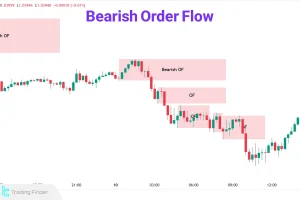Forex trading signals offer traders a convenient and time-efficient method of staying informed on market trends and indicators without spending hours analyzing data. They’re particularly beneficial to traders with limited trading time who trade part time.
As important as signals may be, they cannot guarantee profits and traders must employ appropriate risk management practices in order to increase their odds of success.
Adaptability to Different Trading Styles
Forex trading signals offer traders of all styles and methodologies a means of improving performance through decision-making guidance and performance enhancement. From technical analysis to fundamental analysis, Forex signals offer powerful guidance that can guide decision making process while increasing performance overall.
Trading signals offer many advantages over their non-signalling counterparts, one being their ability to save you time when it comes to market analysis by pinpointing optimal trading times – especially beneficial if trading is just part-time for you or available only as an extra activity.
There are various kinds of forex trading signals, both paid and free ones. Paid signals typically offered by signal providers on either a subscription basis or one-time fee model tend to be more advanced than their free counterparts, which may consist of manual systems or automated algorithms like high frequency trading (HFT). Unfortunately, due to the unpredictability of the Forex market not all signals will be accurate; however, by carefully managing risk you can minimize losses and maximize profits.
Time Saving
Forex signals offer traders an effective means of streamlining their trading processes and increasing productivity. Signals may be delivered through various channels including email, SMS text message alerts, mobile app notifications or trading platform integration; additionally they may be generated manually by experienced traders or automatically by trading algorithms and systems.
Forex signals are short messages that provide guidance on how to trade the market based on various market analysis methodologies. These signals include trend following signals which follow market movements; economic data signals which analyze various indicators like inflation data or employment reports; news event signals which signal significant events like geopolitical shifts or major developments; as well as price action signals suitable for scalping strategies or short-term trading strategies.
Accuracy
There are various methods available to you for receiving forex trading signals. You could subscribe to a signal service, use a trading platform with built-in signal features or develop your own signals through technical analysis tools. Manual trading signals are typically published by experienced traders who conduct thorough research to identify promising trade recommendations that could include trend following, news event trading or market sentiment analysis.
Some forex signal services are free, while others charge either a subscription or one-time fee. Some also offer demo accounts where users can test out their signals before investing real money; other platforms allow copy trading so users can replicate other traders’ trades automatically into their brokerage account. Whatever method you use to acquire forex trading signals, accuracy remains key to profitability – any reliable provider should boast an impressive track record, transparent performance reporting systems and clearly outline their risk management practices.
Risk Management
Forex trading signals can be useful tools for traders, but they cannot ensure profits. Profitability depends on market conditions, individual trading strategies and risk management practices; signal providers’ accuracy, reliability and transparency must first be assessed in order to choose one with quality signals at an acceptable cost if you want your investments protected against poor trade signals or potentially fraudulent signals.
Forex signals created by experienced traders or trading algorithms utilizing detailed technical analysis are among the most reliable in the industry, and can be delivered via email, chat apps and trading platform integrations. Furthermore, signal providers may offer additional services like educational content or risk management tools in order to maximize the benefit of trading signals for traders.
As part of trading, false signals are unavoidable; however, by diversifying signal sources and practicing sound risk management and setting realistic expectations a trader can minimize their negative impact on his/her profitability.





